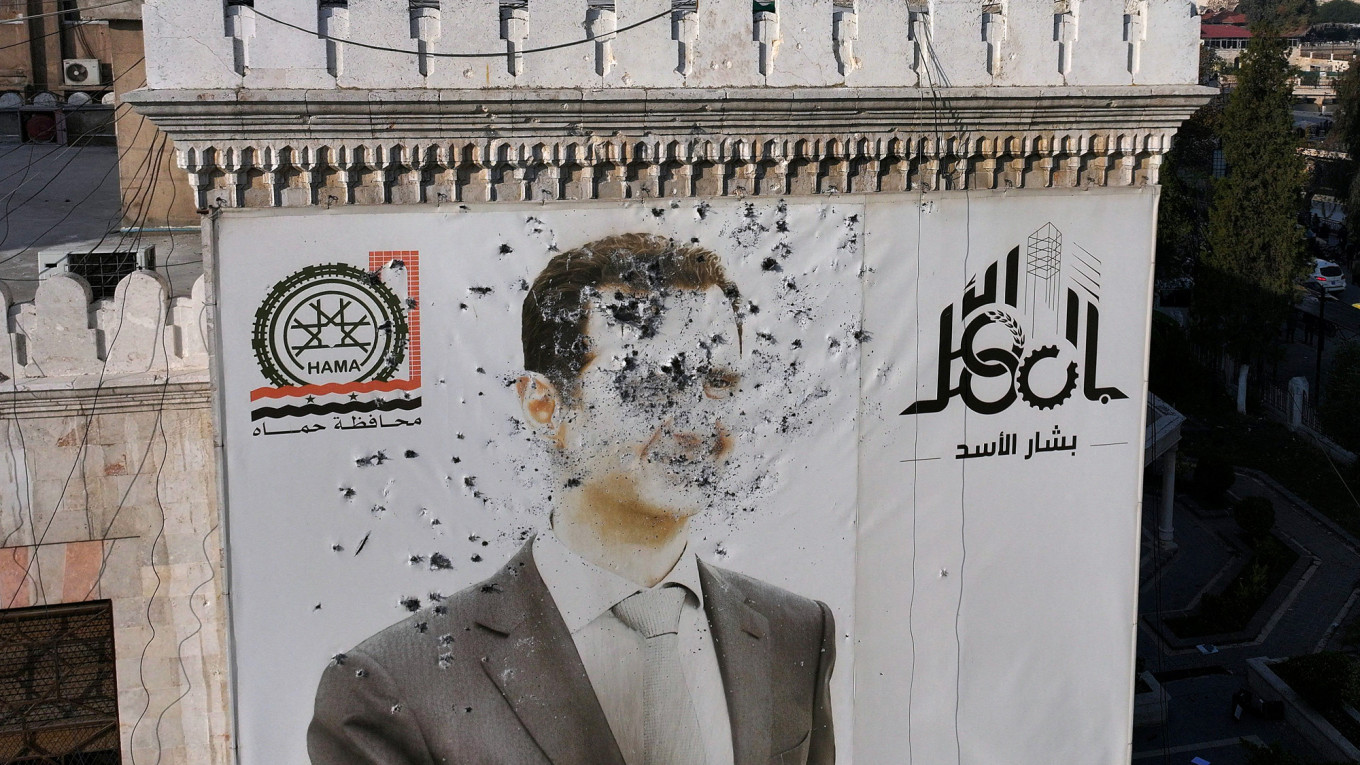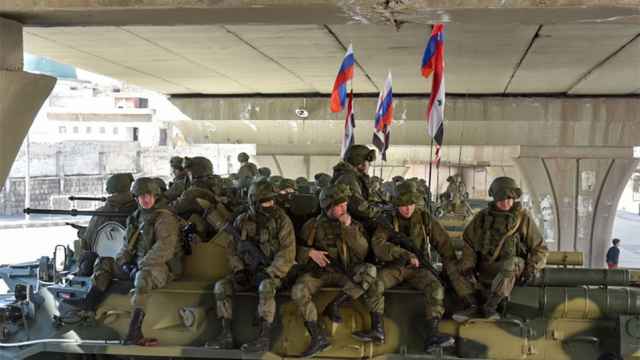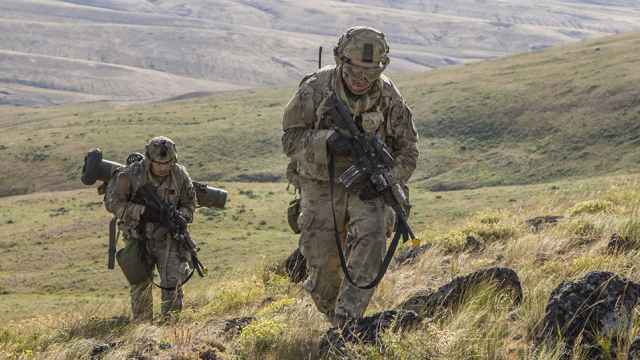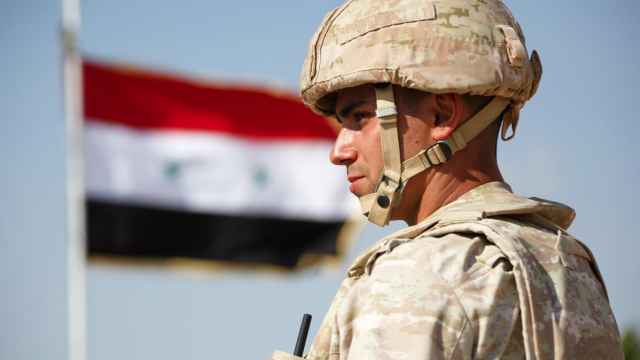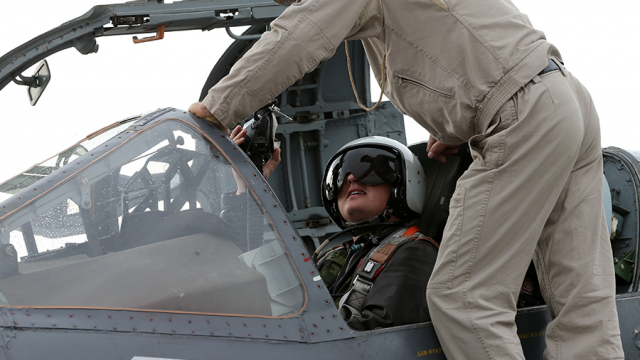Turkey's foreign minister will meet with his Russian and Iranian counterparts in Doha on Saturday to try to find a solution to the renewed fighting in Syria and avoid chaos on its doorstep.
The three countries have been partners since 2017 in the Astana process seeking to end the civil war in Syria. This is despite the fact they have supported opposite sides on the battlefield.
Moscow and Tehran have offered military support to help President Bashar al-Assad crush the opposition.
Meanwhile Ankara, without being directly involved, has supported various rebel movements and looked on their recent lightning advances favourably.
"For Ankara, there is both opportunity and risk in Syria's changing balance of power," said Hamish Kinnear, an analyst at consultants Verisk Maplecroft.
Turkish President Recep Tayyip Erdogan, who this week called on Assad to "reconcile with his people", said Friday he "hoped the advance of the rebels would continue without incident", openly identifying their objective as Damascus.
Turkey is no simple bystander, sharing a 900-kilometer border with Syria and hosting nearly three million Syrian refugees.
For the moment, "the precise role of Turkey in this situation remains a topic of speculation," said Omer Ozkizilcik, a researcher in Ankara linked to the Atlantic Council.
"But what is clear is that without being directly involved, Turkey gave its green light to the offensive," he said.
'Complicated relations'
Even though Ankara's relations with the Islamist group Hayat Tahrir al-Sham (HTS) spearheading the offensive are traditionally “complicated”, the Turkish government was clearly aware of the preparations, Ozkizilcik added.
The most important thing for Turkey "is stability in Syria and a safe area to which Syrian refugees can return," said Gonul Tol, Turkey director of the Middle East Institute in Washington.
Erdogan is no longer insisting on the full removal of the Assad regime which would create a void that would benefit the Islamic State group and Kurdish militants, she said.
Assad has rejected Erdogan's recent attempts to meet, insisting that beforehand Turkish forces must leave the northwest of Syria, where they are deployed to fight Kurdish forces.
Assad's refusal to meet Erdogan has even irritated Russian President Vladimir Putin, Tol said.
Power vacuum
"Assad managed to piss everyone off, including Iranians and Russians and Turks, everyone, because he has been dragging his feet on efforts to reach a deal with both Turkey and others," she said.
Turkey and Russia could seek to promote a transition government without Assad but with some elements of his regime and the opposition, she said.
Iran, for its part, is irked by the lack of support Assad showed after the death of Hezbollah leader Hassan Nasrallah, whose forces had come to Assad's aid during the civil war.
The Qatar meeting – which brings together Russia's Sergei Lavrov, Turkey's Hakan Fidan, and Iran's Abbas Araghchi – could signal the end of Assad in power, the experts say.
As a former head of Turkish intelligence, Fidan is well versed in Syrian affairs and knows all the key players, said Sinan Ulgen, an analyst with Carnegie Europe in Ankara.
A Message from The Moscow Times:
Dear readers,
We are facing unprecedented challenges. Russia's Prosecutor General's Office has designated The Moscow Times as an "undesirable" organization, criminalizing our work and putting our staff at risk of prosecution. This follows our earlier unjust labeling as a "foreign agent."
These actions are direct attempts to silence independent journalism in Russia. The authorities claim our work "discredits the decisions of the Russian leadership." We see things differently: we strive to provide accurate, unbiased reporting on Russia.
We, the journalists of The Moscow Times, refuse to be silenced. But to continue our work, we need your help.
Your support, no matter how small, makes a world of difference. If you can, please support us monthly starting from just $2. It's quick to set up, and every contribution makes a significant impact.
By supporting The Moscow Times, you're defending open, independent journalism in the face of repression. Thank you for standing with us.
Remind me later.


